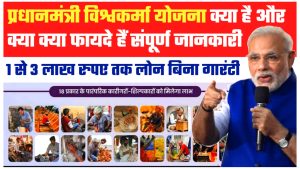ISLAMABAD: The World Health Organization on Monday reiterated the critical role of coronavirus (Covid-19) vaccination on public health, highlighting the need to update vaccine formulations to address evolving variants of the deadly virus.
It is recommended that the monovalent JN.1 lineage variant be retained in future COVID-19 vaccines to enhance immune responses against circulating SARS-CoV-2 variants, according to a recent statement by the WHO Technical Advisory Group on COVID-19 Vaccine Composition (TAG-CO- your mouth).
Despite progress in vaccination efforts, the SARS-CoV-2 virus continues to spread globally, with significant genetic evolution of its spike protein, the UN health agency said. News I mentioned.
She also said that this constant evolution has led to the emergence of new variants that pose ongoing challenges to public health systems around the world.
The WHO’s recommendation is consistent with its goal of improving vaccine-induced immunity against prevailing variants.
Studies have shown that monovalent JN.1 strain vaccines are effective in inducing strong neutralizing antibody responses to JN.1 and its descendant strains, such as KP.3.1.1 and XEC. These variants currently dominate global trading.
TAG-CO-VAC has advised Member States to continue their coronavirus vaccination programs without delay, using any vaccines listed for emergency use or pre-qualified WHO vaccines.
The group also encouraged vaccine manufacturers to focus on formulations that maintain strong immune responses against emerging variants.
In a comprehensive review conducted from December 10 to 12, 2024, TAG-CO-VAC analyzed global data on the evolution of SARS-CoV-2, immune responses from vaccination, and vaccine performance.
Evidence indicated that vaccination with monovalent JN.1 or KP.2 antigens resulted in a significant increase in antibody titers against circulating variants.
Additionally, these vaccines have shown protection against severe disease and death, especially among at-risk populations such as individuals 65 years of age or older or those with underlying conditions.
WHO also highlighted persistent gaps in reporting and genomic surveillance of SARS-CoV-2 by Member States, which complicates efforts to monitor epidemiological trends and assess the impact of emerging variants.
Strengthening these systems remains a priority to effectively combat the evolution of the virus.
While vaccination programs must continue to use current formulations, TAG-CO-VAC encourages research into new vaccine antigens derived from recent variants to further improve protection and reduce transmission. The Advisory Group stressed that future vaccines must balance broad immune responses with practical considerations for global distribution.
WHO’s standing recommendations on COVID-19 underscore the urgent need for vaccination, especially in the face of persistent gaps in epidemiological reporting.
By maintaining a proactive approach to vaccine development and deployment, Member States can ensure better health outcomes for their populations.
As part of its ongoing efforts, TAG-CO-VAC will meet again every six months to review new data and issue recommendations on whether current vaccine formulations should be maintained or updates should be adopted to address emerging challenges.
News Source – www.geo.tv




